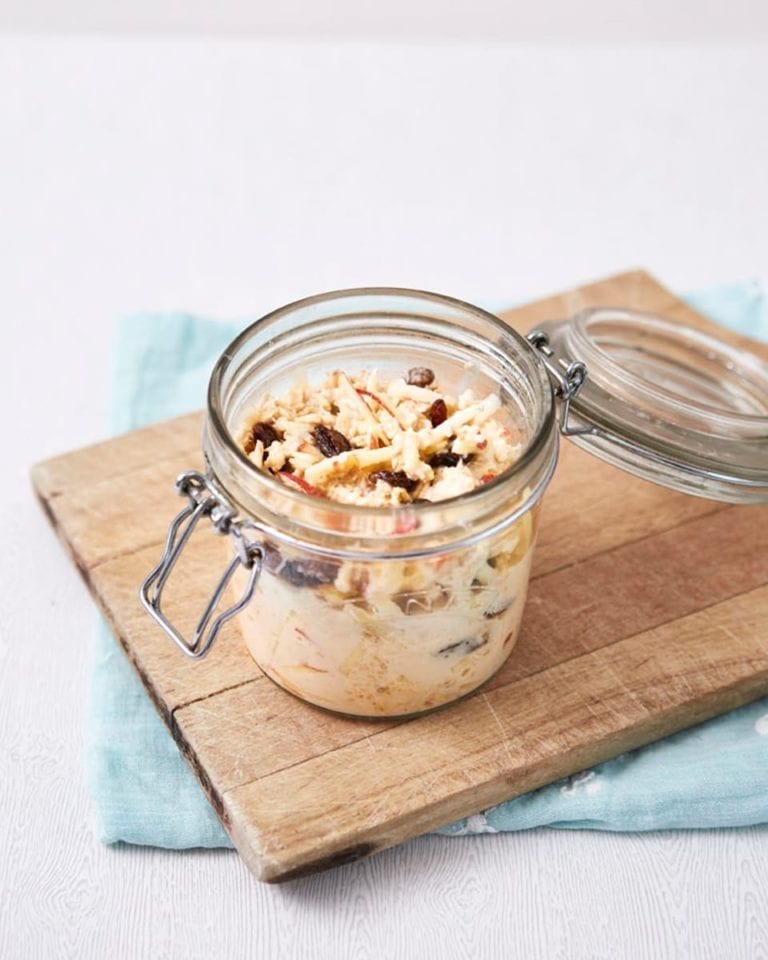How to have a healthy digestive system
Most of us have suffered from digestive discomfort at some stage, but this can be avoided by changing what – and how – we eat, says nutritionist Nell Nelson

The statistics say it all – according to the Digestive Disorders Foundation, over a third of the population suffer from a digestive complaint such as acid reflux, gas, bloating or constipation at least once a week, and gut-related problems account for one in eight UK hospital admissions.
So prevalent are our digestive woes that a charity, Love Your Gut, has been set up to get to the bottom of the problem So, if you occasionally suffer from digestive discomfort, you’re far from alone. But you don’t have to grin and bear the discomfort, or the potential knock-on effects of low energy, poor skin and headaches. Nor do you have to rely solely on over-the-counter medicine, although it’s always best to check with a doctor, especially if your symptoms are persistent. For many, though, they can be remedied by simply adjusting your eating habits with the following tips.
Eat little and often
Small regular meals (every four hours) can leave your digestive system feeling more at ease than long spells without food followed by a heavy meal. But random snacking – especially on starchy foods such as biscuits, cakes and crisps – is not a good idea, and large, rich meals late at night should be avoided. A cooked meal is more easily digested in the middle of the day.
Make your mouth water
Digestion starts long before food even hits your stomach – the smell of bread baking or the sight of a leg of lamb gets your saliva glands working in anticipation of eating. This is great news for your digestion as saliva contains an enzyme called amylase, which breaks down starch. So, make your meals look and smell as appetising as possible. Bitter flavours are very good at stimulating your salivary glands, so start a meal with something like a green salad with the bitter-flavoured radicchio.
Take your time
However delicious it may be, don’t bolt your food – try not to eat when you are feeling stressed or in a hurry. When food is poorly chewed and arrives in the stomach in large chunks, the enzymes and acid in the stomach will break it down less effectively. Studies show that increased chewing reduces the risk of acid reflux, heartburn and bloating. For patients with chronic indigestion, doctors recommend chewing each mouthful at least 25 times.
Be prepared
The sight and smell of food also causes nervous signals to be sent from the brain to stimulate gastric juices in the stomach. Try to cook meals from scratch where possible, as this preparation process will prime the digestive system for what’s to come and your food will be consumed more easily.
Stay hydrated
Keeping hydrated is key for digestive health, as fluids help to keep stools softer and easier to pass. Aim to drink at least six to eight small glasses of water (about 1.2 litres in total) a day. Keep your hydration levels up between, rather than during, meals. Too much fluid while eating dilutes your gastric juices, making digestion harder.
Eat fibre
Your system needs ‘bulk’ for good digestion and to keep your bowel movements regular – and that means eating plenty of fibre, which can be found in the form of fruit (leave the skin on when possible), vegetables, nuts, pulses and whole grains. Whole grains contain more fibre than processed grains, and are better for your digestion, but oats should be soaked overnight to soften the flattened oat grain, making it easier to digest. Try making some Bircher muesli; soak muesli or oats in orange juice or apple juice, then serve with grated apple, yogurt and seeds and honey for a delicious and beneficial start to the day. You can also try adding coarse bran (which can be bought from a health food shop or chemist) to your breakfast cereal.
Cut down on sugar
Too much simple sugar can cause fermentation to occur in your gut, leading to bloating. Fruit is quickly broken down into sugar, so it’s better to eat fruit on its own or at the beginning of a meal – have melon as a starter. Apples, pears and citrus fruits are also a good choice as they are rich in pectin, a natural polymer that can aid digestion and reduce the absorption of cholesterol. For a fruit pudding, stew pears or apples with their skin on in orange juice, with a teaspoon of cinnamon to sweeten.
Prebiotics and probiotics
‘Prebiotic’ foods contain nutrients that stimulate the growth of the bacteria that help you to digest food; ‘probiotic’ foods actually contain these bacteria. Examples of prebiotic foods are leeks, bananas, onions and, to a lesser degree, beans and pulses. Live yogurt and probiotic yogurt drinks contain bacteria that break down lactose, making it easier to digest – which is why people who are lactose intolerant may be able to enjoy yogurt. Try adding probiotic yogurt to cereals and puddings.
Exercise and digestion
Regular exercise helps maintain good digestion by reducing sluggishness in the intestines, but it’s not a good idea to rush off to exercise straight after a meal. Both digestion and exercise need a good supply of oxygen-carrying blood, so your muscles will have to wait.
Eat/drink
- Herbal teas such as fennel, peppermint and camomile can help dispel flatulence and ease intestinal spasms.
- Black pepper is said to aid digestion and break down fat.
- Fresh pineapple contains the enzyme bromelain, which helps break down protein; it is most concentrated in the core.
- Try to incorporate prebiotics and probiotics into your daily diet, as well as fibre-rich foods such as fruit, veg, pulses, wholegrains, bran and nuts.
Avoid
- Saturated fats and fried food.
- Too much wheat and dairy – nutritionists claim that this can cause food allergies.
- Large amounts of red meat, which hangs around in the stomach, giving a full feeling.
- Alcohol, which can irritate the linings of the intestines and stomach.
- Excess caffeine can cause spasms in the gut – it’s best to try not to overdo it by drinking excessive amounts of coffee.
- Spices are not harmful for most people, but some people are sensitive to them – go easy if you have a problem with heartburn or irritable bowels.
Nell Nelson, who is based at Neal’s Yard Remedies in Edinburgh, is author of Eat Well with Nell (£12.99, Hachette). For more on digestive health, visit Love Your Gut and Core charity.
Subscribe to our magazine
Food stories, skills and tested recipes, straight to your door... Enjoy 5 issues for just £5 with our special introductory offer.
Subscribe
Unleash your inner chef
Looking for inspiration? Receive the latest recipes with our newsletter